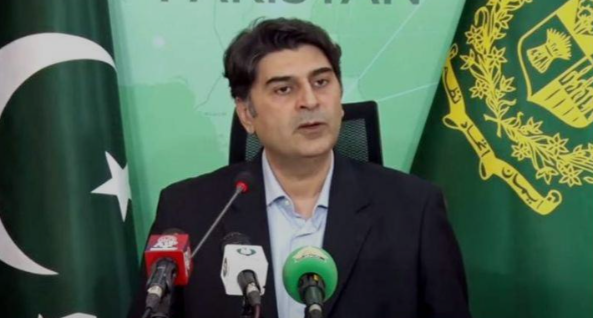Study Highlights Critical Concerns About Unsafe Abortions in Pakistan
A comprehensive study titled “Safeguarding Women’s Health: Trends, Inequities, and Opportunities in Pakistan’s Abortion and Post-Abortion Care Services“ has brought to light alarming statistics regarding abortion and post-abortion care in Pakistan. Conducted by the Population Council in partnership with the Guttmacher Institute, this study provides crucial insights into the state of reproductive health in the country, revealing significant gaps in care and health risks, particularly for women in marginalized areas.
High Rates of Induced Abortions with Complications
The findings of the study reveal that in 2023, as many as 66 out of every 1,000 women of reproductive age (15-49 years) in Pakistan had undergone induced abortions. This represents a high rate of abortions, many of which are unsafe and carried out under poor medical conditions. Alarmingly, between 21% and 30% of these women experienced serious complications following their abortions. The high incidence of complications points to severe shortcomings in the availability and quality of reproductive healthcare services, leaving many women vulnerable to significant health risks.
Rural Women Face Disproportionate Risks
One of the key findings of the study was the sharp disparity in access to reproductive healthcare between women in rural areas and their urban or wealthier counterparts. Women in rural areas are disproportionately exposed to unsafe abortion practices due to limited access to safe and reliable medical facilities. These women often lack the same healthcare options and resources as those living in urban centres. The study also highlights that 17.3% of women have an unmet need for family planning, which plays a major role in the rising number of unintended pregnancies that often lead to unsafe abortions.
Government’s Commitment to Addressing Reproductive Health Challenges
In response to the findings, Dr Malik Mukhtar Ahmed Bharath, Coordinator to the Prime Minister on National Health Services, reiterated the government’s dedication to improving healthcare access for women, particularly in marginalized and underserved regions. He emphasized the government’s commitment to building a healthcare system where every woman can access the services she needs without fear of stigma or discrimination.
Dr. Malik further noted that maternal mortality in Pakistan remains high, with 186 deaths per 100,000 live births. The research underscores the urgent need for comprehensive reforms in reproductive healthcare, including better access to family planning services, to address the growing challenges.
Decline in Abortion-Related Complications but Persistent Inequities
While the study did show some positive trends, including a decline in abortion-related complications from 13.9 per 1,000 women in 2012 to 11.7 per 1,000 in 2023, significant inequities still persist. Many women, especially those in rural and impoverished regions, continue to face barriers to accessing safe abortion services and post-abortion care.
Urgent Need for Reproductive Health Reforms
Given the findings of the study, Dr. Malik called for immediate reforms in Pakistan’s reproductive healthcare system. He stressed the importance of balancing the country’s population growth with available resources, pointing out that this can only be achieved through improved access to family planning services. The government has outlined plans to implement the study’s recommendations, which include investing in healthcare infrastructure, capacity building, and enhancing emergency response capabilities to improve reproductive health services nationwide.
Pakistan’s Reproductive Health at a Critical Juncture
This study is the third in a series of national assessments on women’s reproductive health, following similar reports in 2002 and 2012. The findings come at a pivotal time, as Pakistan grapples with significant challenges, including stagnating contraceptive use and a high intercensal population growth rate of 2.55% per annum. Despite some improvements, such as a decline in abortion-related complications, the study paints a picture of a healthcare system that is struggling to meet the reproductive health needs of its population.
Women’s Empowerment through Access to Family Planning
Dr. Zeba Sathar, Country Director of the Population Council, emphasized the critical importance of empowering women through access to family planning and safe healthcare services. According to Dr. Sathar, empowering women in this way is not only essential for improving individual health outcomes but also for achieving broader social and economic goals. She stressed that ensuring women’s access to family planning services contributes to a more just and equitable society.
International Support for Reproductive Health Initiatives
International partners, including Norway, have expressed strong support for improving reproductive healthcare in Pakistan. Thomas Dahl, Deputy Head of Mission at the Royal Norwegian Embassy, highlighted the importance of women’s health for the overall well-being and development of society. Norway has been a key supporter of initiatives aimed at improving access to reproductive health services in Pakistan and remains committed to supporting these efforts.
Expert Panel Discusses Safeguarding Women’s Health
The study’s findings were presented at an event that included an expert panel discussion moderated by Dr. Luay Shabaneh, the UNFPA Country Representative. The panel focused on safeguarding women’s health in Pakistan, examining the trends, inequities, and opportunities for improvement in reproductive healthcare.
This study serves as a wake-up call, reminding policymakers, healthcare professionals, and society at large of the pressing need to address the reproductive health challenges facing Pakistani women. Strengthening reproductive healthcare services and ensuring equitable access to safe abortion and post-abortion care is critical to safeguarding the health and well-being of women across the country.



